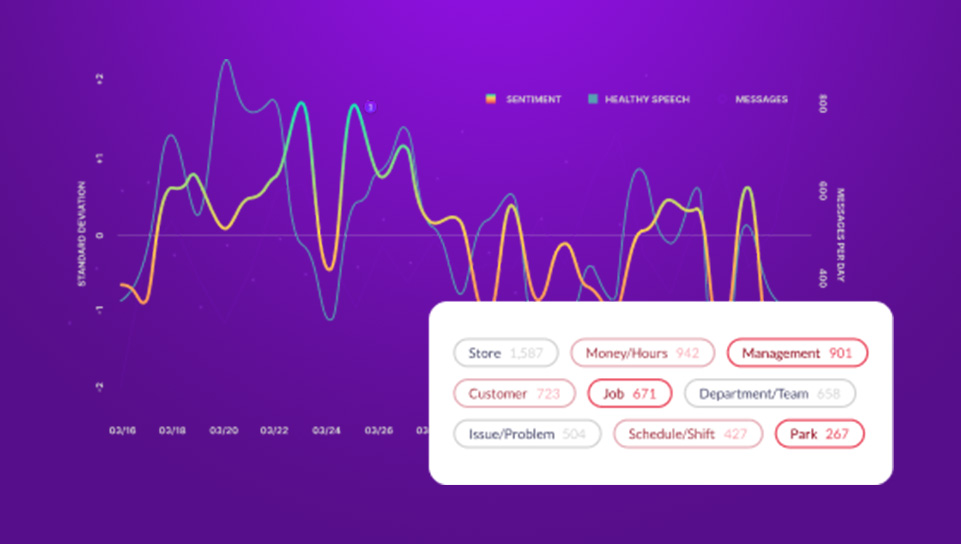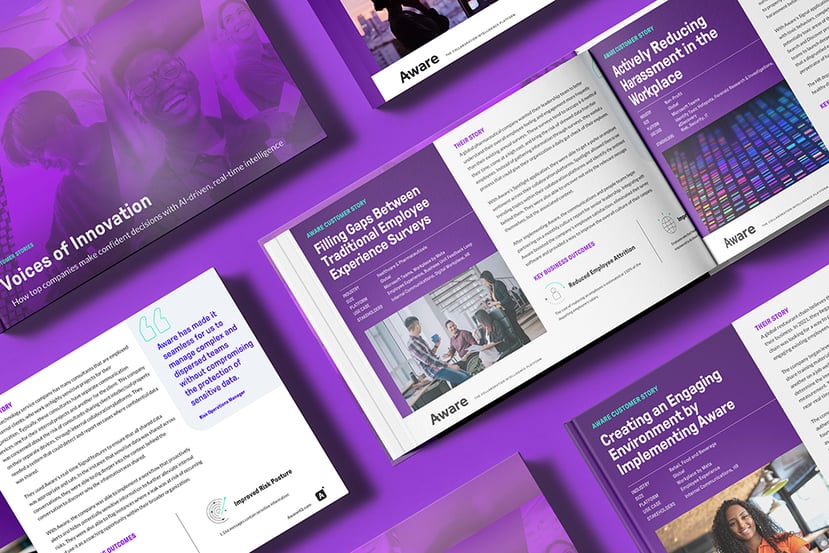Legalweek 2024: The Year of AI
by Aware
Aware was once again on site for Legalweek to learn how the industry is adapting to new technology and leveraging it to streamline discovery processes. This year, AI was everywhere, not least in the Leaders in Tech Law Awards, where AI innovation dominated. However, the legal industry knows better than most the need for guardrails as they roll out new technologies.
This year’s story was one of exciting new possibilities for legal technology—and a growing understanding of the value of company-owned data for training and leveraging this tech. Here’s what we learned.
AI possibilities are endless—but not limitless
It’s clear that the real-time computing power of artificial intelligence and machine learning offers incredible new potential for legal technology. Everything from improving operational workflows to accelerating the review cycle is possible with the right application of AI/ML. However, that application is contingent on ensuring the tech is fit for purpose.
Top of Aware’s 2024 AI Predictions is the need to shift from research to ROI. The AI that dominated last year’s headlines is not the same technology that can safely and securely fulfill enterprise use cases. Before making an AI investment, organizations must understand the capabilities—and limitations—of the tools they’re rolling out to ensure they’re investing in tech that can reliably deliver on their use cases and protect their data.

Learn more: 2024 AI Trends
Generative AI must be used responsibly
Some lawyers have already learned to their cost that generative AI outputs cannot always be trusted. Many generative AI solutions being marketed to businesses today are built on the backs of large language models (LLMs) that were trained on massive, indiscriminate data sets without any real use cases in mind. This produces results that are often unreliable and sometimes outright hallucinated.
Going forward, it is essential that organizations and attorneys ensure the tools and AI they are using are purpose-built and defensible in the litigation process. When using generative AI in particular, extra care must be taken to determine if it’s really the right technology for the job.
It’s time to get savvy about buying AI
AI vendors are making big promises but not all of them are able to deliver. Legal teams need to use strategic discernment when picking the tools that are best for their needs. When organizations get AI right, it can help automate and accelerate time-consuming tasks such as timeline creation, freeing up attorneys for more valuable and technical work, but getting it wrong can add complexity and introduce inaccuracies.
Properly assessing AI capabilities means asking vendors the right questions to understand how the models work and what impact training methodologies and data have on outputs. If AI is to be reliable in this field, those using it must understand what is happening under the hood and how results and outcomes are triggered. While the marketplace is abuzz with new AI tech, not every vendor’s offering will be a quality or effective solution for all use cases.

Buying AI? Get the free guide
AI shifts the EDRM lifecycle to the left
Currently, the review process of EDRM is consuming a disproportionate amount of eDiscovery budgets. AI/ML tech has the potential to narrow the focus and reduce costs by getting more granular about what is collected for review.
Technology, AI, and procedural integrity can go a long way to building more valuable data sets during early case assessment. Pinpointing key artifacts in a more meaningful way by focusing on quality over quantity can negate the need to collect and review everything that may in any way be relevant.
%20-%20Page%201.png?width=1200&length=1200&name=9%20Stages%20(1080%20X%201080)%20-%20Page%201.png)
%20-%20Page%202.png?width=1200&length=1200&name=9%20Stages%20(1080%20X%201080)%20-%20Page%202.png)
%20-%20Page%203.png?width=1200&length=1200&name=9%20Stages%20(1080%20X%201080)%20-%20Page%203.png)
%20-%20Page%204.png?width=1200&length=1200&name=9%20Stages%20(1080%20X%201080)%20-%20Page%204.png)
%20-%20Page%205.png?width=1200&length=1200&name=9%20Stages%20(1080%20X%201080)%20-%20Page%205.png)
%20-%20Page%206.png?width=1200&length=1200&name=9%20Stages%20(1080%20X%201080)%20-%20Page%206.png)
%20-%20Page%207.png?width=1200&length=1200&name=9%20Stages%20(1080%20X%201080)%20-%20Page%207.png)
%20-%20Page%208.png?width=1200&length=1200&name=9%20Stages%20(1080%20X%201080)%20-%20Page%208.png)
%20-%20Page%209.png?width=1200&length=1200&name=9%20Stages%20(1080%20X%201080)%20-%20Page%209.png)
%20-%20Page%2010.png?width=1200&length=1200&name=9%20Stages%20(1080%20X%201080)%20-%20Page%2010.png)
The time to act is now
The opportunity made available to legal teams by AI is huge. With the right application of responsible, targeted models, organizations can perform better, faster eDiscovery and support operational workflows at every stage of the process. With forward-thinking companies already winning awards for innovative application of AI/ML to eDiscovery and legal processes, the time has come to embrace new technologies and commit to the ethical, purposeful application of artificial intelligence in legal tech.








